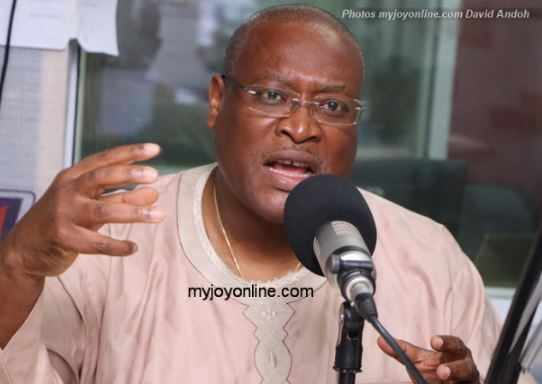Ebola vaccine trial has not started anywhere in Ghana, Mr Alex Segbefia, Minister of Health, categorically stated in Parliament on Tuesday.
He said the Government has not even given approval for the importation of any such vaccines, neither had volunteers been recruited for any of the proposed trials.
The Health Minister indicated that the selection of “volunteers in itself is a very rigorous process with a long drawn out protocol and safeguards.”
Parliament chaired by Speaker Edward Korbly Doe Adjaho, last week, after a statement on the floor of the House, summoned the Health Minister to brief it on the proposed Ebola vaccine trials in Ghana, which was to start in Hohoe District.
In that statement by the Volta Caucus, and read by Mr Emmanuel Kwasi Bedzrah, MP for Ho West, the House expressed some reservations on the vaccine trials, an issue which had assumed a national dimension because of the fear and trepidation that the disease causes.
Mr Segbefia noted the trauma, and the decimation that the outbreak of the disease caused in many African communities last year, saying the “the disease caught Africa and the whole world unawares and totally unprepared.
“It traumatized and decimated many communities in fellow West African countries namely Guinea, Liberia and Sierra Leone.”
The Minister noted the quest among leaders in the ECOWAS sub-region and the subsequent urgent appeals to the international community, and the World Health Organisation in particular, to assist in relief operations and in finding a cure for the dreaded disease.
Mr Segbefia noted with appreciation the efforts of then ECOWAS Chairman, President John Dramani, in finding relief to the disease, and the rallying around by the WHO pharmaceutical, research and development companies that had prospective candidate medicines, some of which were being administered as trials on people who had contracted the disease while working on volunteers in some disease stricken areas in West Africa.
The Health Minister told the House that subsequent to a meeting of the African Vaccine Regulatory Forum in South Africa in October 2014, the WHO wrote to regulatory bodies of Ghana and four other West African countries, namely, Nigeria, Senegal, Cameroun and Mali, notifying them of the intention of Glaxo Smith Kline (GSK), one of the world’s leading pharmaceutical companies, to submit candidate vaccine for clinical trials in respective countries.
This was followed by a meeting in Geneva, after which the GSK submitted an official application to the Ghana Foods and Drugs Authority for authorization to conduct clinical trials.
In February 2015, the FDA received another application from Johnson and Johnson to conduct clinical trials in Ghana. Similar applications were made to Kenya, Tanzania, and Uganda by the same company.
According to Mr Segbefia, since 2004, the FDA had dealt with 54 applications for clinical trials, out of which 43 were approved, explaining that the other 11 applications were not approved due to insufficient evidence and safety.
Mr Segbefia said the vaccine did not contain the Ebola Virus, and it could cause the Ebola disease.
He noted, however, that the rationale for conducting the trial in the five West African countries, including Ghana, was that these countries shared common borders with the affected countries.
Mr Sebgefia observed that there was misunderstanding about the trial, the dangers and benefits, and gave the assurance that the Ministry would engage the Select Committee on Health for national sensitization programme on the vaccine trial on June 18.
Meanwhile, the House unanimously was not happy with a statement attributed to Prof Alex Dodoo, a pharmacologist, indicating that members were ignorant about the vaccine trials.
Members of the House in strong terms condemned the statement as contemptuous, and the Speaker directed that Prof Dodoo appeared before the Privileges Committee to explain himself.
The Committee of Privileges consists of the First Deputy Speaker as Chairperson, and not more than 30 other Members and it enquires into any complaint of contempt of Parliament, or any matter of privilege, which may be referred to it.
Health News of Thursday, 18 June 2015
Source: GNA
Ebola vaccine test has not started in Ghana – Segbefia
 Mr Alex Segbefia
Mr Alex Segbefia
Entertainment















